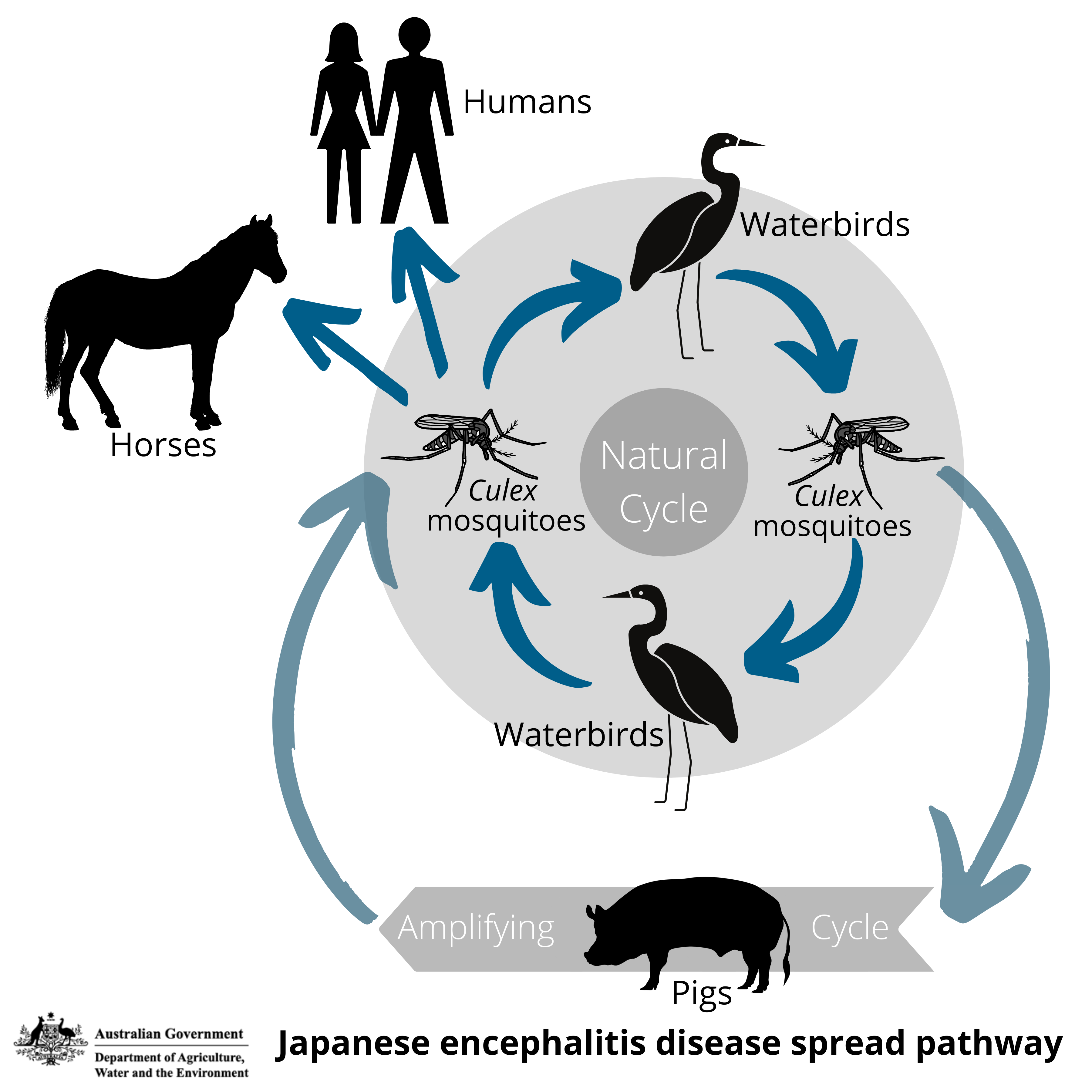Japanese encephalitis virus
Japanese encephalitis virus (JEV) is a mosquito-borne viral disease. It can cause:
- reproductive losses in pigs
- encephalitis in some animals, such as horses
- disease in people.
Severe illness arising from JEV infection in humans is rare and most people will have no symptoms if infected. Pigs and horses do not spread the disease directly, and they do not pass it onto people.
JE is a notifiable disease. However, it is not a food safety concern.
Detections in animals
Pig and horse owners are urged to be alert for JE in their animals, and the areas of detection in SA.
Mosquito bites spread the virus
JEV spreads mainly through mosquito-waterbird or mosquito-waterbird-pig cycles. Waterbirds, such as herons and egrets, are thought to be an important host species in this lifecycle:
- Mosquitoes become infected with the virus after feeding on an infected animal.
- Once infected, mosquitoes can spread the virus locally.
- Waterbird movements may spread the disease over long distances.

Pigs can develop sufficient levels of the virus in their blood for a short period of time (approximately 4 days) which can reinfect mosquitoes when they feed on an infected pig. Pigs may rarely come infected with JEV by direct contact with an infected pig, or via semen from an infected pig.
Horses can be infected but are known to be a dead-end host. This means that they do not carry a blood infection that can reinfect mosquitoes.
Reports of disease in other animal species are rare.
Signs of JE infection in animals
Affected animals may show signs such as:
- fever
- decreased appetite
- neurological signs
- death or stillbirths.
Find out more about signs to look for and what to do.
Managing JEV
All landholders are responsible for managing mosquitoes on their property – this is key to preventing infection.
There is currently no JEV vaccine available in Australia for animals, and there is no specific treatment.
People working with pigs, including those with a single pet or small herd, should take steps to protect themselves and their animals. Everyone should consider their risk of exposure to mosquitoes in any work they are doing and take appropriate precautions.
See how to reduce the risk and protect yourself from JE.
JEV vaccinations for eligible people
Free JEV vaccines are available for a limited time for eligible groups.
Check if you are eligible and find out where you can get vaccinated.
